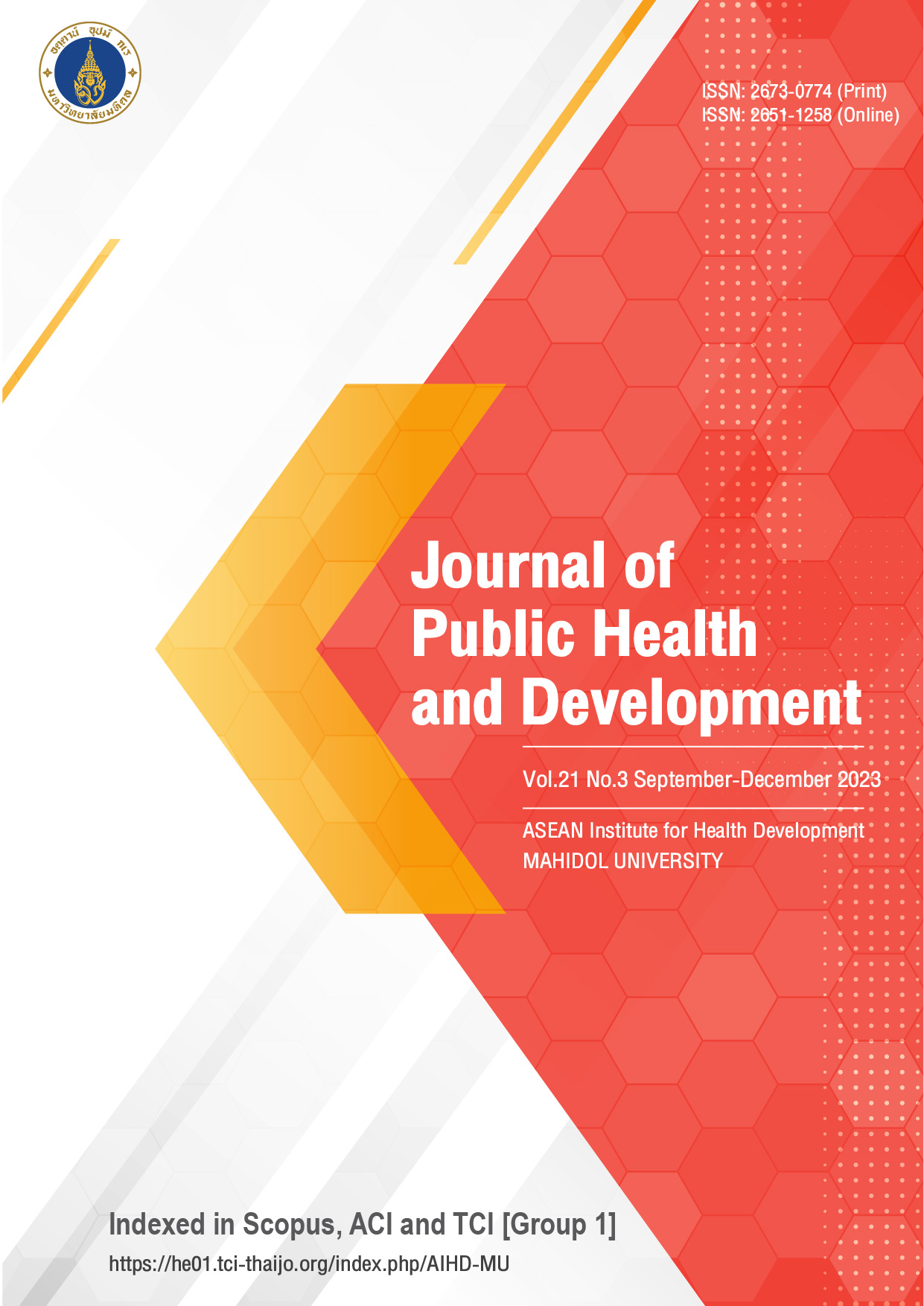Effectiveness of Psycho-educational Program on Perception and Obstacles regarding Electronic learning among Nursing Students 10.55131/jphd/2023/210310
Main Article Content
Abstract
Background: Electronic learning (e-learning) nowadays has become a necessity for organizations to support their learning activities and integrating e-learning into learning and teaching may be a tough process with several hurdles. Psycho-educational program is necessary for nursing students to improve their perception and overcome obstacles regarding electronic learning thus improving their learning experience. Objective: The study targets to evaluate the effectiveness of psycho-educational program on perception and obstacles regarding electronic learning among nursing students. Design: This study used quasi-experimental design, pretest-posttests; students were 341 chosen randomly from four academic years, at Assiut University's Faculty of Nursing, during the 2021/2022 academic year. Methods: Students chosen randomly and given the psycho-educational program. Data were collected via student perceptions of electronic learning questionnaire and obstacles to electronic learning questionnaire before and after the program intervension. Results: This study showed an improvement in positive perception as the percentage was (90.3%) compared to (56.9%) before implementing the program, and negative perception decreased from (43.1%) to (9.7%) with a statistical difference after implementing the program (p<0.001). This study revealed reduction obstacles regarding e-learning which in pre-program, 78.9%, 74.5%, and 70.4% reported the presence of obstacles regarding technical and administrative support, infrastructure and technology, and curriculum content dimension, respectively. While, in the post-program, 34.6%, 34.6%, and 28.7% reported the presence of obstacles regarding the same subdimension of obstacles. Also, perception and obstacles were negatively correlated. Conclusion: This study concluded that psycho-educational program showed beneficial effect on improving perception and reducing obstacles faced by nursing students towards electronic learning. Recommendation: this study might help as a guide for future study into the success reasons that contributing to the positive outlook regrading e-learning systems.
Key words: Perception, Obstacles, E-learning, Psycho-educational program.
Article Details

This work is licensed under a Creative Commons Attribution-NonCommercial-NoDerivatives 4.0 International License.
References
Al-Gahtani SS. Empirical investigation of e-learning acceptance and assimilation: A structural equation model. Appl Comput Informatics. 2016;12(1):27–50.
Pauline Chitra A, Antoney Raj M. E-Learning. J Appl Adv Res. 2018; 3(1): 11–13.
Al-Samarraie H, Teng BK, Alzahrani AI, Alalwan N. E-learning continuance satisfaction in higher education: a unified perspective from instructors and students. Stud High Educ. 2018;43(11):2003–19.
Committee W. Statement on the second meeting of the International Health Regulations (2005) Emergency Committee regarding the outbreak of novel coronavirus (COVID-19). Geneva WHO. 2020;1–7.
Sintema EJ. Effect of COVID-19 on the performance of grade 12 students: Implications for STEM education. Eurasia J Math Sci Technol Educ. 2020;16 (7).
Sasmal S, Roy M. Perception of undergraduate nursing students regarding e-learning during COVID-19 pandemic in West Bengal. Int J Community Med Public Heal. 2021;8(4):1892.
El-Zeftawy AMA, Hassan LAE-WAE-A. Perception of students regarding blended learning implementation of community health nursing course at faculty of nursing, Tanta University, Egypt. J Nurs Educ Pract . 2016;7(3).
Bagshaw K. Student Perceptions about Critical Thinking in Online Psychiatric Nurse Education. ProQuest Diss Theses. 2020;16–24. https://scholarworks.waldenu.edu/dissertations/8260/
Zare M, Sarikhani R, Salari M, Mansouri V. The impact of E-learning on university students’ academic achievement and creativity. J Tech Educ Train. 2016;8(1):25–33.
Gokuladas VBaby Sam S. Psychological and Operational Challenges in Educational Field amidst Pandemic. Rev Rom pentru Educ Multidimens. 2020;12 (2Sup1):143–51.
Odit-Dookhan K. Attitude towards E-Learning: The Case of Mauritian Students In Public Teis. People Int J Soc Sci. 2018;4(3):628–43.
Bubou G, Job G. Benefits, Challenges and Prospects of Integrating E-Learning into Nigerian Tertiary Institutions: A mini review. Int. J. Educ. Dev. using Inf. Commun. Technol. 2021;17:6-18.
Abbasi S, Ayoob T, Malik A, Memon SI. Perceptions of students regarding e-learning during covid-19 at a private medical college. Pakistan J Med Sci. 2020;36(COVID19-S4):S57–61.
Rana S, Garbuja CK, Rai G. Nursing students’ perception of online learning amidst COVID-19 pandemic. J Lumbini Med Coll. 2021;9(1):6.
Mahlangu VP. The Good, the Bad, and the Ugly of Distance Learning in Higher Education. Trends in E-learning. InTech; 2018.
Mirza AA, Al-Abdulkareem M. Models of e-learning adopted in the Middle East. Appl Comput Informatics. 2011;9(2):83–93.
Kentnor HE. Distance Education and the Evolution of Online Learning in the United States. Curric Teach Dialogue. 2015;17(2):21–0.
Mohamed G, Fouad N. E-learning During COVID-19 Pandemic: Obstacles Faced Nursing Students and Its Effect on Their Attitudes While Applying It. Am J Nurs Sci. 2020;9(4):300.
Abdelrazek A, Abdallah M. Effect of Obstacles Faced Nursing Students related Applying E-learning during COVID-19 Pandemic on their Attitudes. Egypt J Heal Care. 2021;12(4):554–69.
Zalat MM, Hamed MS, Bolbol SA. The experiences, challenges, and acceptance of e-learning as a tool for teaching during the COVID-19 pandemic among university medical staff. Hwang G-J, editor. PLoS One. 2021;16(3):e0248758.
Ali, S., Uppal, M.A., Gulliver S. A conceptual framework highlighting e-learning implementation barriers. Inf Technol. 2018;31:156–80.
Khan MA, Vivek V, Nabi MK, Khojah M, Tahir M. Students’ Perception towards E-Learning during COVID-19 Pandemic in India: An Empirical Study. Sustainability. 2020;13(1):57.
Teo T, Zhou M. Explaining the intention to use technology among university students: A structural equation modeling approach. J Comput High Educ. 2014;26(2):124–42.
Alshwaier A. A New Trend for E-Learning in KSA Using Educational Clouds. Adv Comput An Int J . 2012;3(1):81–97.
Lis T, Paula B. The Use of Cloud Computing by Students from Technical University - The Current State and Perspectives. Procedia Comput Sci. 2015;65: 1075–84.
Yaw Koi-Akrofi G, Owusu-Oware E, Tanye H. Challenges of Distance, Blended, and Online Learning: A Literature based Approach. Int J Integr Technol Educ. 2020;9(4):27–39.
Osman M, Abdulwahid K, Zakaria A. Assessment of Factors Affecting E-learning : Preliminary Investigation. ResearchGate. 2018;( August ):12.
Mohamed M, Abd Elaziem A, Abd Elsalam M, Ibrahim E, Mohamed N, Mostafa S, et al. Perception, Satisfaction, and Obstacle of Online Learning Faced by Academic Nursing Students during COVID-19 Pandemic. Egypt J Heal Care. 2022;13(1):1–14.






